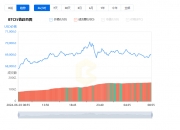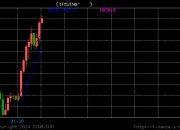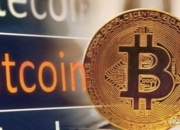“看病难”一直是我们面临的大问题。然而,区块链技术将在医疗领域大展身手,不仅使患者真正拥有自己的数据,同时确保临床医生对现有病情和治疗方案有一个全面的了解。
& nbsp; & & & ldquao; & & & & rdquao; has been a big problem for us. However, block chain technology will go a long way in the field of medical care, not only to give patients real access to their own data, but also to ensure that clinical doctors have a comprehensive understanding of existing conditions and treatment programmes.
今天就让我们聊聊区块链可能在医疗方面的一些具体应用案例。
Let us talk today about some specific medical applications of the block chain.
某区块链公司使用户能够实时存储和管理他们的健康信息,用户可以创建终身健康记录,当要去看医生时就可以随身携带。该公司的用户使用可以该项目加密货币来购买更多存储空间。
A block chain company enables users to store and manage their health information in real time. Users can create lifelong health records and carry them when they want to see a doctor.
与大多数医疗健康区块链应用程序一样,该公司已转向私有区块链,其中所有节点都位于安全网络中。
Like most health block chain applications, the company has moved to a private block chain, all of which are located in a secure network.
Professional Credentials Exchange 首席执行官 Anthony Begando说:“如果你想创建很适合使用区块链技术的行业级别解决方案,你必须要确保隐私。这是真实世界的商业现实。”
Chief Executive Officer Anthony Begando said that if you want to create industry-level solutions that are well suited to use block chain technology, you have to ensure privacy. This is the business reality of the real world.
PokitDok 为医疗保健垂直行业开发 API,如医疗报销,药房和身份管理。它为各种来源的患者数据提供了一个安全的网络。在其演示中,PokitDoc 演示了它如何在几秒钟内完成是否应进行医疗报销的复核。
PokitDok develops an API for the vertical sector of health care, such as medical claims, pharmacies, and identity management. It provides a secure network of patient data from various sources. In its presentation, PokitDoc demonstrated how it should complete the review of medical claims in a few seconds.
就经济影响而言,区块链的这种应用在医疗报销决定和账单管理中至关重要。Frost&Sullivan 称:“区块链技术可能不是解决医疗保健行业挑战的灵丹妙药,但它有可能通过优化当前工作流程和消除一些高成本监控费用,从而节省数十亿美元。”
In terms of economic impact, this application of block chains is crucial in medical reimbursement decisions and bill management. Frost&Sullivan says: “ block chain technology may not be a panacea for health-care sector challenges, but it has the potential to save billions of dollars by optimizing current work processes and eliminating some high-cost monitoring costs. & & rdquo;
Chronicled 正在解决区块链医疗保健领域最突出的用例之一。他们开发了一个跟踪药品,血液和人体器官的平台。它还使用便携式智能传感器,在区块链上存储温度读数,以确保安全的数据传输。
Chronicled is addressing one of the most prominent examples of block chain health care. They have developed a platform for tracking drugs, blood and human organs.
当有审计或者召回需要时,拥有对供应链的追踪能力对于确保安全性,可信度和信任尤为重要。此外,还有一些项目旨在将区块链应用于人工智能,分析数据以提高流程效率。
In addition, there are a number of projects aimed at applying block chains to artificial intelligence and analysing data to improve process efficiency.
如上文,我们看到区块链给医疗领域带来了诸多好处,但为什么目前区块链在医疗领域的应用案例还没有大范围落地呢?其实区块链在医疗行业的应用尚且还存在一些待解决的问题:
As noted above, we see that the block chain has brought many benefits to the medical sector, but why is the current case of the block chain’s application in the medical field not far off? In fact, the application of the block chain in the medical sector has still to be resolved:
以法律法规条文规定较为完善的美国为例,如果一家医疗机构需要采用区块链技术的话,必须符合早前针对互联网行业的信息、隐私等条例法案,并且美国每个州的条例还各不相同,医疗机构需要针对这些条条框框进行区块链系统的个性化的定制才能够符合标准并上线相关服务。
In the United States, for example, where legal and regulatory provisions provide for a more sophisticated system of block chain technology, a medical institution must comply with earlier regulations on information, privacy, etc. for the Internet industry, and regulations vary from state to state, and medical institutions need to customize block chain systems for these frames in order to meet standards and access relevant services.
任何一个新型的解决方案都需要一定的成本,去中心或者多中心区块链的成本较原本中心化的网络服务来说要大得多,对技术、网络基础资源、服务运维等方面的初始投入必然是相对较大的,这种情况下必然会阻碍区块链被医疗机构的大范围采用。
Any new solution would require a certain cost, the cost of going to a centre or multi-centre block chain would be much greater than the originally centralized network service, and the initial investment in technology, network-based resources, service delivery, etc. would necessarily be relatively high, which would inevitably prevent the block chain from being adopted on a wide scale by medical institutions.
另外,目前区块链技术的发展看,拓展性仍然是一个问题,这会限制区块链系统在用户数庞大的医疗领域服务的效率,或许会造成服务拥堵等情况。
In addition, current advances in block chain technology continue to pose a problem in terms of outreach, which can limit the efficiency of block chain systems in terms of the number of users in the medical field and may result in service congestion.
尽管区块链技术为医疗保健行业带来了众多益处,但我们不应该把盲目乐观。
While block chain technology brings many benefits to the health-care sector, we should not be blindly optimistic.
某基因组学公司的首席科学官 Dennis Grishin 称,区块链技术只是故事的一部分。他说:“这是一个重要的部分,但它不是唯一的部分, 最终,区块链技术必须与其他技术一起部署,以创建更有效的医疗环境。”
The chief science officer of a genomics company, Dennis Grishin, said that block chain technology was only part of the story. He said: & & ldquao; it was an important part, but it was not the only part, and ultimately, block chain technology had to be deployed with other technologies to create a more effective medical environment. & rdquao;
注册有任何问题请添加 微信:MVIP619 拉你进入群

打开微信扫一扫
添加客服
进入交流群



















发表评论